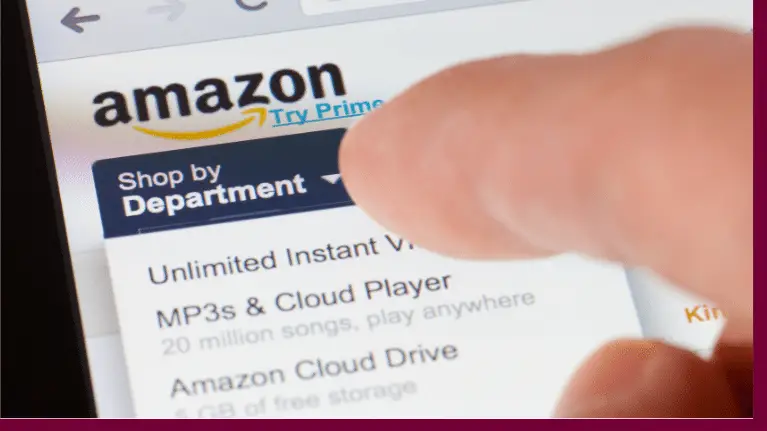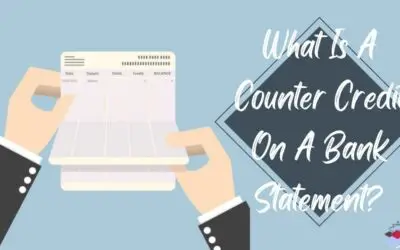There’s a preconceived notion that you need a lot more money to be good at it.
However, that is not necessarily true.
Being good at handling your finances is not about how much the amount is sitting in your bank account. It’s more on what and where you spend it plus the everyday hows of managing it.
Besides, you don’t entirely need a massive sum of money to learn how to manage it. Whatever the amount you have or can make right now, you have an equal chance to manage and handle it well.
The new Mind Over Money survey by Capital One and The Decision Lab reveals that 77% of Americans are most worried about their financial future. It includes not having enough money to retire, keeping up with the cost of living, and managing debts.
If you’re one of those who constantly worry about managing their finances, you’re not alone.
So, here’s some food for thought.
With 2022 fast approaching, do you want to change your financial life and achieve financial independence before the year ends?
Then get on board with these six tips on managing money that will surely improve your finances.
1. Create a budget.
Whether you like it or not, a budget is your starting point. If you don’t want to call it that way, you can refer to it as your exclusive spending plan or a special fund.
You may have heard before that you will become a millionaire if you just skip your morning latte. But you can probably save a lot more on your other significant expenses like a vehicle or a mortgage.
For example, you are purchasing a brand new car vs. pre-owned.
According to the Kelly Blue Book, the average cost of a brand new car in 2019 is about $37,000. On the other hand, buying the exact pre-owned vehicle is worth roughly $27,000.
It means that you can save worth $10,000- much more than a year’s worth of lattes.
It’s crucial to remember that when you buy a new car since it is a depreciating asset, it eventually loses 10-20% of its value in its 2nd year and continues to lose 10% more on its succeeding life span.
Unlike when you purchase a second-hand vehicle, that will cost slightly lower compared to the new one. Not to mention the other expenses you will incur when you buy a new car.
So when budgeting, try to focus on cost-cutting and curbing your spending on the next big ones, not just the trim line items.
Tips on managing money- Budgeting methods
There are also a bunch of ways for you to do your budget. One is going through the traditional pen and paper or excel sheet approach.
If you’re more on the tech-e side of things, you can use a budgeting app to help you monitor your finances anytime and anywhere.
Envelope Method
There is also the Envelope Method. If the traditional budgeting way bores you, then an envelope method may be the perfect fit for you.
Essentially, you will allocate a set amount for each spending category and put it inside a dedicated envelope or a pocket. Then, you can only spend to that set amount you initially input, and you cannot exceed nor borrow from other envelopes you set.
With this approach, you will know how much money you have left for a specific spending category—for instance, your fun money. So if you set $300 solely for your entertainment, you can only spend up to that amount.
50-30-20 Rule
For a more holistic approach, there’s the classic 50-30-20 rule. Essentially, you follow this percentage rule in budgeting for your essentials or needs vs. wants.
50% of your take-home pay should go to your basic needs, 30% for your wants, and 20% for savings. The 50-30-20 rule is flexible, depending on your salary or paycheck amount.
Some used the 70-30 or 60-40 rule. Therefore, the most important thing to consider here is allocating your money based on needs, wants, and savings.
Zero-Sum Budgeting
Lastly, you can also use the Zero-Sum Budgeting Method. This one is very straightforward. Your money should equal zero.
More importantly, zero-based or zero-sum budgeting ensures that all your money is spent well (or saved) in its specific allocated expense category. It may also help you save more money because you zero out your dollars at the end of the month. Plus, you have nothing left over since everything has either been spent or saved.
Overall, whichever budgeting method you choose, pick one where you will feel at ease and where you can start making peace with your money.
2. Set specific savings goals.

Another practical and realistic tips on managing money are to set specific savings goals. More likely, pay yourself first.
With this, you must be specific on how you want to achieve your financial goals, what it is, and your plans to get to where you want to be from where you are right now.
It’s easier to say, “I will save $10,000 this year to fund my emergency fund.” However, a goal needs a timeline and careful planning and execution before you can attain it.
It’s not like you will come up with this amount in one whole piece.
What you can do is to allocate a part of your money and commit to your savings goal. For example, if you want to save $10,000 in 12 months, you can start with $125 in one week.
Then add $150 on the second week. For the third week, deposit $175, and on the fourth and last week, set aside $300.
Continue setting aside these amounts and before you know it, at the end of the year, you have saved $10,000.
Moreover, there are many money-saving challenges you might want to try and start today. It’s easy, fun, and adds an extra layer of motivation and inspiration to your savings goals.
If you have zero ideas of saving money, you can start with building your emergency fund. Your emergency fund should cover three to six months’ worth of your living expenses.
In case of sudden and unexpected life events, your emergency fund will be the safety net that will save you from a multitude of unfortunate debts.
Moreover, you can also start building your sinking fund. A sinking fund is for your planned purchases. That way, you can have a budget allocated towards these purchases.
For instance, holidays and birthday gifts. If you plan to give gifts this year, start your sinking fund as early as now so you have a budget for when the holiday comes.
You can set up a sinking fund for your medical, insurance, travel, or even pet care expenses.
3. Tackle your debts.

Tips on managing money better? Simple. Face your debts.
You might have heard about avoiding debts at all costs. Well, not all debts are created equal. Although some good debts can help you increase and boost your credit score, it still boils down to avoiding high-interest rate debts on items that can quickly lose their value.
One type of debt you must avoid is a debt with an interest rate higher than 5% such as credit card debt carried from month to month.
Aside from that, it would be best if you steer clear of going into debt for anything that is most likely to quickly lose its value, such as jewelry or any other luxury goods.
However, sometimes borrowing money makes sense. For example, you are taking loans for education or for starting a business. These are considered healthy debts because they may lead to possible more income in the future.
For some, a low-interest mortgage might be a good use of debt because a house has the potential to appreciate.
Likewise, even using credit cards as long as you pay the balance in full every month (and on time!) can help improve your credit score by showing lenders that you can responsibly manage debt.
But remember, healthy debts only help your credit score if you make your payments on time, so if you’re looking to increase your credit score, only borrow an amount of money you are confident you’ll be able to pay back.
4. Treat yourself.

As much as we value saving and proper money management, of course, don’t forget to reward yourself for your hard work and effort.
Treat yourself to every accomplished goal or when you reach your savings goals every once in a while.
That way, you’ll be extra motivated to work hard on your financial goals. Celebrate every little win! There’s no sense in working your butt off only to get stressed and sacrifice your health and well-being for the future that is far away.
It would help if you had a healthy balance between being extremely frugal and happy and getting a fine taste in life.
5. Invest your money.

What’s the point of being a high-income earner if you spend it all and save $0?
Instead, start building long-term wealth by making your money work for you beyond today.
One of the valuable tips on managing money well is saving and looking for ways to grow your money and let it multiply more even while you sleep.
Realistically, just saving isn’t likely to be enough to reach, say, for example, your retirement goals.
Thanks to compound interest, earning interest on interest over time can help investors experience exponential growth.
Contributing to retirement accounts like 401(k)s and IRAs can potentially help you save on taxes and allow your investments to compound even faster.
Concerning taxes, here are a few tips on managing money effectively. First, you can reduce your taxable income. It means to get compensated in a way that isn’t taxable or find ways to pay fewer taxes on the money you make.
For example, many employers offer benefits that allow you to receive or set aside tax-exempt money for things like health care, child care, retirement, among the few.
Another way is to defer your taxes. It means to pay your taxes later by contributing to Traditional IRA or 401(k).
These types of retirement accounts allow you not to pay taxes until you withdraw your money during retirement, when your tax rate may be lower.
6. Build a system that will work best for you.

One of the best tips on managing money is to build a system that will ultimately work best for you.
It includes having a plan, any financial goal, sticking to it, and keeping track of your progress.
Suppose spreadsheet budgeting works well with your money management, then good for you! Keep doing it, and don’t just copy what others are doing or insisting you should do.
After all, it’s your money and your life. So if it’s not broken, don’t try to fix it.
Once you find a system that works, don’t get distracted by new apps or any other conflicting financial advice you hear or read somewhere.
It may be tempting to try the next best thing, especially if it promises to be more accessible, simpler, or faster. But, if you’re already on a rhythm that works- you’re saving money, meeting your financial goals, building security- keep going; your hard work and focus will bear fruit.
Final thoughts
Therefore these are six tips on managing money.
You do not need a fancy degree to learn how to manage your money the best way. With dedication and practice, you can be your own best manager.
So stop playing red light green light with your money. Break the cycle of living paycheck to paycheck and start with making a conscious decision to live below your means.
Again, you must create a budget. First, start reviewing your bank statements, then rank and prioritize your current expenses into non-negotiables, wants but can live without, and completely unnecessary.
Based on your priorities, you can
- cut off all unnecessary expenses,
- cut down excessive spending on wants,
- find ways to make more money
- make sure you’re not overpaying on your necessary expenses.
Before anything else, we would also like to add tips on managing money well to avoid insurance for expenses you can afford.
Of course, depending on one’s life situation, you might need car insurance, home or renter insurance, life insurance, and everyone needs health insurance.
Keep in mind that insurance’s purpose is to protect you in unfortunate scenarios. Moreover, in exchange for protection, you pay for premiums.
You may want to rethink and skip the insurance for smaller valuables like electronic devices and gadgets if you can afford to replace them.
It is because paying for coverage you might never use can be an absolute waste of money.
That’s it! We hope that these tips on managing money can guide you towards your conscious effort to handle your finances better. On the other hand, if you are already doing it, we hope that this is a refresher for you to improve along the way.
Therefore, would you instead get your finances right or play the squid game and risk it all with debt so prevalent nowadays?












0 Comments